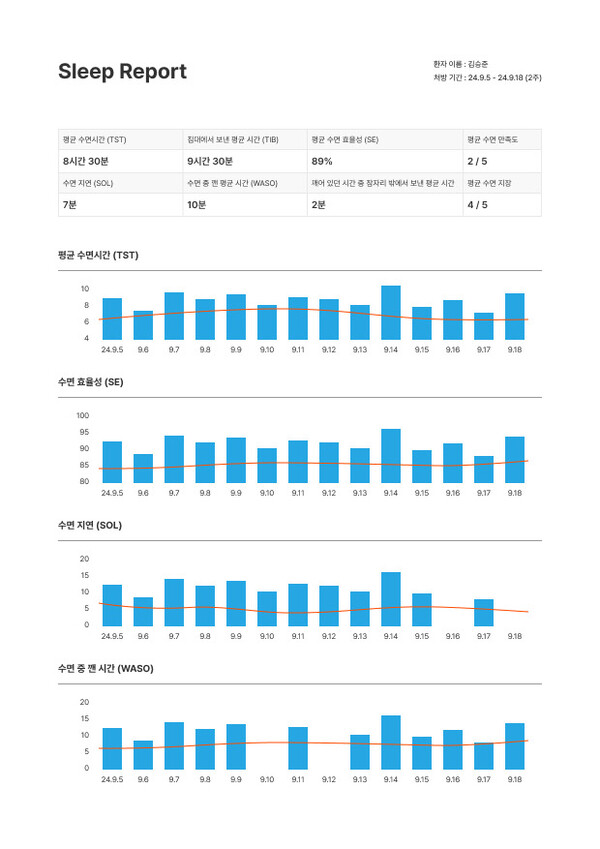Korean digital therapeutics company Ybrain has launched a new platform aimed at supporting clinical diagnosis of insomnia, marking its official entry into the sleep tech space.

The MINDD Digital Sleep Diary, unveiled Monday, is a digital solution that enables users to record their previous night’s sleep every morning. The system collects data on key metrics such as sleep onset latency, total sleep time and nighttime awakenings -- metrics Ybrain said can be used by clinicians to evaluate insomnia more objectively than traditional paper-based sleep diaries.
The tool’s clinical workflow includes patient sign-up, provider activation, test scheduling and report generation. Reports offer visual summaries of sleep patterns and track changes over time, providing data that can support treatment planning and before-and-after comparisons.
Ybrain CEO Lee Ki-won said the company launched the product in May, which is celebrated as Family Month in Korea, to encourage broader mental health check-ins among parents, students and working adults. Ahead of the launch, the company said it opened full access to hospitals to allow free pilot testing in clinical settings.
Ybrain operates the broader MINDD Platform, a digital mental health ecosystem that spans screening, diagnosis, treatment and ongoing management. The platform includes MINDD STIM, a prescription digital therapy that uses microcurrent stimulation to treat depression at home without drugs.
Related articles
- Ybrain proposes context-based adaptive interfacing at International BCI Meeting in Korea
- Ybrain's device improves depression symptoms in perinatal women: data
- Ybrain selected for government-funded project to develop wearable robots for paralysis rehabilitation
- Ybrain’s drug-free depression device tops 180K prescriptions in Korea
- Ybrain's home-use depression device granted extended access in Korea
- Ybrain ships depression therapy device to Thailand
- Ybrain’s EEG device tops 300,000 uses as demand for brainwave diagnostics grows
- Electronic antidepressant MINDD STIM shows strong early results in perinatal depression trials

